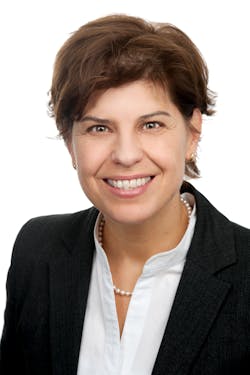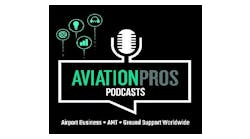INFORM GmbH Executives Present Digital Solutions at Virtual World Aviation Festival Designed to Optimize Ground Operations and Address COVID-19 Concerns
Aachen, Germany - INFORM GmbH, a leading global provider of advanced optimization solutions for airlines, airports and ground handlers, recently presented its optimization solutions in a webinar at the recent Virtual World Aviation Festival. The INFORM presentation focused on measures organizations can take to strengthen their ground operations and meet COVID-19 related challenges.
Companies have been forced to redefine business processes and mitigate the risk of the virus’ spread. They are challenged to maintain operational and fiscal integrity amid evolving health and safety regulations, a highly volatile business environment, increasing cost pressures and unpredictable revenues. Utilizing its GroundStar (GS) Planning and GS WorkforcePlus solutions, as well as its COVID-19 Tracer System, INFORM is helping clients to proactively plan and respond to the “what if” scenarios ahead, while keeping staff and passengers safe.
“The main risk is that the virus spreads from person to person throughout an organization and leads to the quarantine of entire teams, causing great disruptions. The virus does not discriminate between work roles. It can affect ramp workers, terminal staff, managers, passengers and their relatives equally,” said Uschi Schulte-Sasse, SVP Aviation at INFORM.
Schulte-Sasse recommends organizations review and adapt their work processes to their unique circumstances. This could include the strengthening of reporting lines, reducing staff overlaps, implementing COVID-19 tracers, keeping separate teams and enforcing new hygiene and social distancing processes. Additionally, processes could encompass using remote workforces where appropriate, identifying critical staff and considering new ground procedures and equipment utilization. For example, smart baggage belts and bus assignments can help to avoid large clusters in the baggage hall and overcrowding of buses, while smart queue staffing based on flight schedules at gates and checkpoints can help to facilitate social distancing.
Ideally, work processes should help keep physical contact between staff members to a minimum.
“If possible, split the staff into distinct teams,” said Schulte-Sasse. “These teams should be physically and geographically separated and work different shifts to avoid cross-contamination. Equally important, face-to-face interaction between staff and passengers should be kept at a minimum.”
She continued, “Before the pandemic, planning was only an operational task, now it is a matter of daily survival.”
Working with airlines, airports and ground handlers, INFORM provides its GS Planning solution to create what-if scenarios to address the current volatility and the unexpected. It helps clients dynamically determine resource demands and allocate possible costs for various flights based on different evaluation criteria such as expected seat load factor, shift types and length, employees needed on the ground and in the aircraft, service level agreements, etc. All related costs are immediately visible in the planning set-up. Automated scripts enable planners to run daily planning scenarios adapting to new planning parameters. In addition, INFORM’s workforce management application will help with creating adapted staff rosters to tackle the challenges of the situation. Schedules are automatically created, adjusted to current business requirements and published via staff portals.
“This functionality helps with building solutions that minimize the risk of contagion, e.g. by reducing team interactions while maintaining operational integrity,” added Jörg Herbers, SVP Workforce Management at INFORM.
“We also have the ability to trace staff contacts and potential infection spreads within an organization and across an entire airport, and quickly identify knock-on effects caused by removing infectious staff from the operation. The system then identifies lacking coverage and provides options for the most efficient, safe and lowest cost way forward,” Schulte-Sasse concludes.
For more information on this topic, visit: https://www.inform-software.com/products/groundstar





